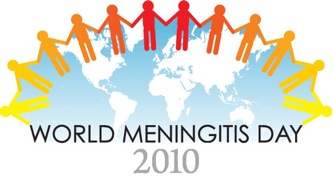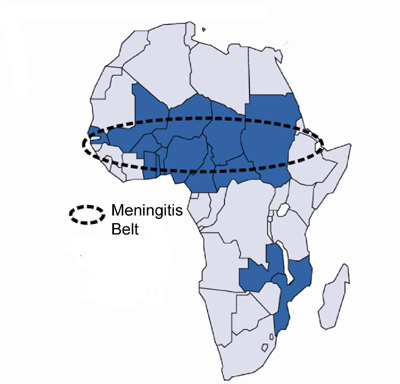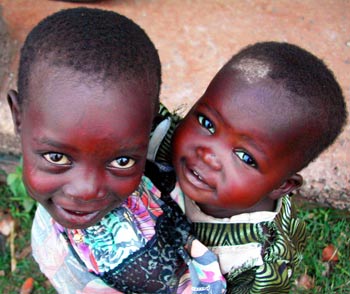
This coming Saturday its World Meningitis Day. This Sunday is World Malaria Day. When I first heard that these two were occurring so close together, my reaction was what were they thinking? Upon further reflection, though, I beginning to think that this lack of coordination could end up being a good thing. Here's why.
While both meningitis and malaria occur around the world, the region most affected by both diseases is the same: sub-Saharan Africa.
While both diseases can cause illness and death in anyone and at any age, children are the most likely to be affected - and the most likely to die - from both diseases.
In Africa, children who are seriously ill and go to a health facility or hospital with a high fever and convulsions can have either malaria or meningitis, and very often physicians who take care of them don't know which one it is. So for a practicing doctor in the region, every day is potentially both a malaria and meningitis day.
Both diseases have safe, effective treatments and preventive interventions that are largely underused. In the case of malaria, there are new therapies like the artemisinin-containing therapies (based on Chinese medicine originally) that can effectively treat many or all cases of malaria. And for malaria prevention, insecticide-treated bednets (see Nothing But Nets for more on these) have proven effectiveness and are increasingly, but not yet universally, available. Vaccines for preventing malaria are being tested in the field and could be available in just a few years.

For meningitis, vaccines against the leading bacterial causes - Hib, pneumococcus, and meningococcus - are available and their use is on the rise. In fact, this year we expect new pneumococcal conjugate vaccines and a new meningococcal conjugate vaccine designed specifically to combat outbreaks in the African "meningitis belt" - the area of the world with the highest risk of bacterial meningitis - to begin rolling out.
Lastly, these two diseases are linked by another common thread. In Africa, sickle cell disease is a common genetic disorder that increases the risk of bacterial meningitis many fold. In fact, a systematic review of all information on sickle cell disease and bacterial meningitis published just this week in the Lancet Infectious Diseases by Meena Ramakrishnan estimates that sickle cell disease increases the risk of bacterial meningitis by 15-30 times.
The link with malaria is that the gene for sickle cell is related to malaria risk. While having two copies of the sickle cell gene increases the risk of bacterial meningitis, and the risk of child mortality overall, having just one copy of the gene is protective for malaria. So where there's malaria, there's sickle cell disease, and with it, lots of bacterial meningitis.

